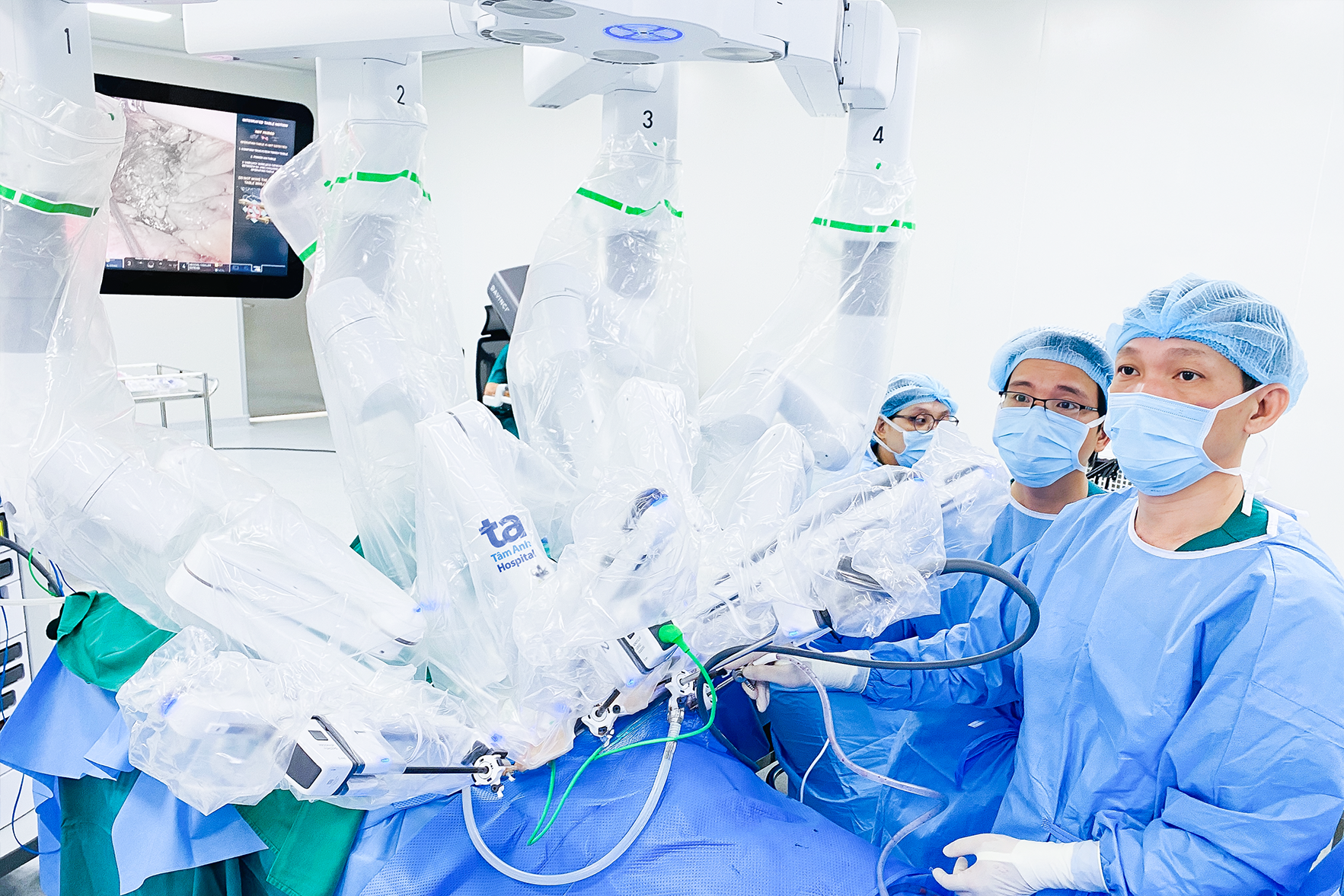Dat, who suffers from multiple underlying conditions, including chronic obstructive pulmonary disease (COPD), initially underwent endoscopic resection at another hospital to temporarily address the hematuria. He was then transferred to Tam Anh General Hospital in Ho Chi Minh City. Associate Professor Doctor Vu Le Chuyen, director of the Urology, Nephrology, and Andrology Center, assessed that the cancer had invaded the muscle layer of the bladder wall, rendering endoscopic resection ineffective. A complete bladder removal was the only remaining option to eradicate the cancer. However, due to the patient's age and underlying health conditions, the surgery was deemed high-risk.
Doctors convened and determined that open surgery would require a nearly 40 cm incision to reach the tumor deep within the pelvic cavity, causing significant pain. Traditional laparoscopic surgery carried risks such as respiratory failure, lung infections, and pneumothorax. Ultimately, the medical team decided on robotic-assisted bladder removal using the Da Vinci Xi system.
The surgical team prepared for potential complications, such as excessively high blood CO2 levels, which might necessitate switching from robotic to open surgery to ensure the patient's respiratory stability. Fortunately, the procedure was completed safely and as planned within 120 minutes, with no complications, and the patient remained stable.
Three days post-surgery, Dat recovered well, experiencing no pain at the incision site and maintaining good respiratory function. He is scheduled for follow-up appointments to monitor his bladder and other organs and prevent recurrence.
 |
Dat's bladder cancer surgery, assisted by the Da Vinci Xi robot. Photo: Hospital provided |
Dat's bladder cancer surgery, assisted by the Da Vinci Xi robot. Photo: Hospital provided
Vietnam recorded approximately 2,000 new cases of bladder cancer in 2022, according to Globocan. Bladder cancer often presents with vague symptoms, sometimes including hematuria, painful urination, lower back pain, fatigue, weight loss, and loss of appetite, often mistaken for urinary tract infections. By the time severe hematuria occurs, the disease is often in an advanced stage.
Associate Professor Chuyen recommends that individuals with suspicious symptoms or those in high-risk groups (smokers, those exposed to harmful chemicals, or those with a family history of the disease) undergo regular health checkups and screenings for early diagnosis and treatment.
Ha Thanh
*The patient's name has been changed.












